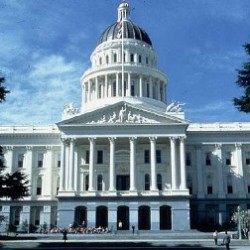California Regulated Online Poker By 2015?

California is the most populous state in the US with around 38 million residents, and as such has the potential to become the biggest player in America’s newly regulated online poker environment.
California online poker worth $384m within 10 years
Thus far, just Nevada, Delaware, and New Jersey have launched statewide real-money online poker, but according to market research company PokerScout, if California decides to legalize online poker, then ‘The Golden State’ could reap online gambling revenues of up to $263 million for the first year, rising to around $384 million by the tenth year of operations.
PokerScout‘s study was based upon figures collected in the US between 2009 and 2010, when unregulated poker was thriving in the US prior to the Department of Justice’s Black-Friday operation, which subsequently shut out online poker companies from its domestic market. According to PokerScout’s figures, 178,300 Californian online poker players generated on average $867 in revenue each year for the online poker operators, thus creating a market worth $155 million. Furthermore, a regulated Californian online poker industry is expected to far exceed its previous peak, when it accounted for 16% of US online poker revenues.
California online poker by 2015?
According to experts, legal online poker in California is likely to be approved by 2015 as the state seeks creative ways to increase its tax revenues. However, the state is unlikely to approve other online gambling games because of political pressure from Indian casinos concerned with the potential threat to their brick-and-mortar casinos. As Richard Schuetz from California’s Gambling Control Commission, explains:
“I think there’s a belief among our tribal partners that the Internet as a distribution network for gambling products could in some ways cannibalize the brick-and-mortar environment.”
Nevertheless, others disagree with the Indian tribes’ stance on online poker, with Washington, D.C. gaming law attorney Jeff Ifrah, stating: “there are only so many pieces to the gaming pie..But I don’t think that’s the way it works. It’s not like opening another casino across the street. Online gaming can actually generate new foot traffic for land-based casinos.”
However, the size of Californian potential online market depends largely on the state’s ultimate decision to either limit the player pool to Californian residents or form compacts with other states.
Compacts unlikely to be formed in California
California has a huge population of nearly 40 million people and as such is capable of supporting an online poker ecosystem on its own. Therefore, the state is less likely to want to share its sizable player pool and seek to form compacts with other states, such as Nevada (2.7m) and Delaware (917k), where the need is more pressing.
For these smaller states, liquidity agreements are seen as more a question of long-term survival, with even Nevada Gaming Control Board Chairman A.G. Burnett, admitting that “we don’t have the liquidity to make this a success.” As a result, Nevada is currently seeking ways to form a compact with both Delaware and New Jersey, with Brower believing a deal would be signed “in the next year.”
Nevertheless, forming interstate compacts is unlikely to be either an easy or quick process, with harmonizing regulatory requirements posing the greatest challenge to the varying parties. In Delaware, for instance, just 888 is allowed to operate an iGaming licence, whereas in Nevada’s liberal market almost anyone qualified can obtain an online gaming license.
With that point in mind, VP of Government Relations for Caesars Entertainment, John Maddox, offered the following advice for smaller states looking to share player pools.
“My advice to state legislators is that the bill you pass match up with the states you find most desirable to compact with. If you have a choice between doing the Delaware model or the New Jersey model – or the potential California model – you’d probably be smart so sync up your legislation and regulations as closely as possible with those bigger states than with a smaller state.”
California studying regulated New Jersey online poker market
As mentioned, California is unlikely to introduce online poker or any other major reforms before 2015, as this year there is expected to be a state election. In the meantime, the state will be carefully studying the USA’s three regulated markets, although New Jersey with its population of nearly 9 million people will be of particular interest.
Having launched its first legal internet gambling site on November 21st, 2013, the New Jersey Division of Gaming Enforcement (DGE) has now released its online gambling results for the six weeks up to the end of 2013, revealing $8.4 million in revenue for the state’s seven online gambling operators.
According to those figures New Jersey can expect to rake in around $100 million for 2014, although analysts have warned against reading too much into initial results, particularly as the roll out period was hampered by technical and payment problems. Consequently, other analysts, such as senior VP of Moody’s Investors Service, Peggy Holloway, believe that figure will be between $250 million and $500 million for the first full year of operations. As Holloway, explains:
“While internet gaming is starting off slowly, the pace of growth will accelerate as issues with payment processing and geo-location technology are ironed out and operators ramp-up their marketing spending to educate consumers that online gaming is available.”










